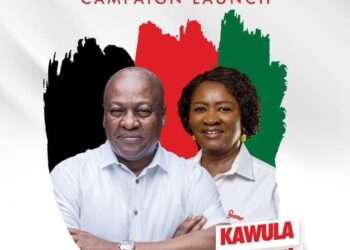Tropenbos Ghana, an NGO that influences forest policy and sustainable development, has urged President Nana Akufo-Addo to repeal the Environmental Protection Regulation, Legislative Instrument (LI 2462).
For most developing countries in the tropics, forests and associated resources are deemed the single most important resource base that propels sustainable development, and the general well-being of the masses. This can be realized when the right measures (policies, regulations, practices, etc.) are initiated, instituted, and effectively enforced.
“The L.I in its current form and intent means no forest reserve in Ghana is exempted from mining if deemed to be in the interest of the state as determined by the President. This implies that even Ghana’s most sensitive forest areas protected by Acts of Parliament and international conventions that Ghana has signed on to can no longer be deemed secured; as such, counter-productive to innovative solutions to manage such areas.”
Boakye Twumasi Ankra, Project Manager, Tropenbos Ghana
According to the Project Manager, Boakye Twumasi Ankra, the NGO is demanding the immediate reversal of the directive from the Minister of Lands and Natural Resources, Samuel Abu Jinapor, to the Forestry Commission to permit timber harvesting companies to log in Globally Significant Biodiversity Areas (GSBAs).
Tropenbos Ghana also called on the immediate reversal of the directive from the Minister of Lands and Natural Resources (MLNR), Samuel Abu Jinapor to the Forestry Commission to grant permits to timber harvesting companies to log in Globally Significant Biodiversity Areas (GSBAs). These forest reserves host endangered species and as such, must be protected.
“The president upon receipt, should as a matter of urgency give assent to the Wildlife Resources Management Bill which among other things consolidates laws related to wildlife and protected areas. Passed by Parliament on July 28, 2023, the bill is yet to have Presidential assent; delaying its enforcement. This holds the potential to cause no action on key regulatory propositions and interventions that are outlined in the bill. It is therefore important for parliament to expedite action on all processes that are needed to be undertaken before submission to the office of the president for his assent.”
Boakye Twumasi Ankra, Project Manager, Tropenbos Ghana
Additionally, the Tropenbos Ghana called on the MLNR and the Forestry Commission should improve the adoption of technology and internet-based solutions in forest management. This can be done by strong collaboration between the Forestry Commission and other service providers e.g., the Center for Remote Sensing and Geographic Information System (CERGIS), Ghana Natural Resource Monitoring Platform, etc. to deploy secured platforms for effective monitoring and management of forests and tree resources across scales.
Environmental Protection Regulation, Legislative Instrument (LI 2462)
The Environmental Protection Regulation, Legislative Instrument (LI 2462), is a regulation passed in November 2022 by the Environmental Protection Agency (EPA) in Ghana. This regulation, titled ‘Environmental Protection (Mining in Forest Reserves) Regulations’, facilitates mining leases across vast portions of forest reserves and other protected areas that were previously off-limits to mining.
It allows for mining activities in areas that were previously protected, including Globally Significant Biodiversity Areas (GSBAs) and Kakum National Park, despite these areas being on the regulation’s prohibited list.
Since the regulation was passed, mining leases and lease applications have been granted in forest reserves, including eight new leases, according to Tropenbos Ghana. This has raised concerns among civil society groups, who argue that the regulation contradicts Ghana’s constitutional framework for natural resource management and undermines commitments to climate change mitigation and biodiversity protection.
“The MLNR to undertake a comprehensive assessment of tree performance under the Green Ghana Day initiative. This can be done by engaging an independent entity to undertake the assessment and proffer solutions for not only improving the initiative but also sustaining the same to increase tree cover across the county.”
Boakye Twumasi Ankra, Project Manager, Tropenbos Ghana
The regulation also includes prohibitions on where mining activities cannot take place, specific associated operations that should not happen within the location of the mines in forest reserves, and sanctions concerning infractions of the rules. It is designed to attract more investments into the country by demonstrating that Ghana’s laws protect the environment.
However, the controversy surrounding LI 2462 highlights the complexities of balancing economic development with environmental protection, particularly in the context of mining activities in protected areas. The debate over the regulation underscores the need for careful consideration of environmental impacts and the involvement of various stakeholders in the decision-making process.





















